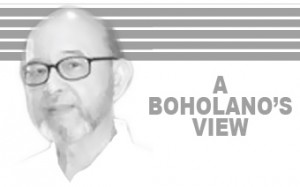How does our country compare with other countries in the world? We have the findings of the Bertelsmann Foundation, a German think tank that evaluates the quality of democracy, market economy, and political management in 129 developing countries every two years. Its latest evaluation was made in the 2014 Bertelsmann Transformation Index.
Here are the main findings regarding the Philippines.
- The Philippines ranks: 36th overall in 2014, from 48th in 2012.
- 40th in political transformation,
- 44th in economic transformation.
- This is the best showing for the Philippines since 2003.
- The Republic of the Philippines is a weak State. It’s Democracy remains fragile despite some progress made in the last four years under President B.S. Aquino III.
- Family dynasties severely hinder democratic and economic transformation.
- Elections are largely free and fair.
- High in violence and killing.
- Weak in taxation and law enforcement.
- High in poverty—at least one third of the people live below the poverty line ($1.25 per day).
- Judiciary is formally independent but a lot of bribery by the rich and powerful.
- True progress in the Republic of the Philippines is out of reach unless the improbable is achieved. Dismantle the oligarchs and family dynasties that control politics and business. (In other words together the President and Congress must enact the Anti-dynasty law as the 1987 Constitution directs them. The 1987 Constitution in Article II. Section 26 provides: “The State shall guarantee equal opportunities for public service and prohibit political dynasties as may be defined by law.â€) This would be “highly unrealistic since President Aquino III himself and 80 percent of our lawmakers come from these dynasties.
- The record of the administration of President Gloria Macapagal Arroyo (2001-2010). She “presided more than 37 consecutive quarters of economic growth and ‘adeptly steered’ the economy at the height of the 2008 global financial crisis. However, the majority of the population did not benefit from those gains, with just as many people in poverty at the end of her term as when it started. The political gains that would have been associated with economic growth were also eroded by corruption scandals…. Government became more authoritarian during Macapagal-Arroyo’s term.â€
“These came in the form of the prevalence of patronage for all government positions, a lack of transparency, a growing number of human rights violations against the regime opponents and money politics to co-opt potential partners, the report said.†This comment on the Bertelsmann evaluation was reported by Paolo G. Montecello in his article in the Philippine Daily Inquirer, April 17, 2014.
- Reforms under President B.S. Aquino III. Early in his term, the President succeeded in his leadership in the impeachment of former Supreme Court Chief Justice Renato Corona, a midnight appointee of the previous administration, and removing him for culpable violation of the Constitution and betrayal of the public trust.
The Supreme Court declared the “pork barrel system†(Priority Development Assistance Fund or PDAF) unconstitutional. So several senators and representatives have been tried for plunder and three senators were already found guilty and imprisoned. Bertelsmann noted that this would have far-reaching effects in reducing corruption and the improvement of checks and balance between the executive and legislative departments of the government.
BTI cited as progress the passage of the Reproductive Health Law that intends to reduce the steadily growing overpopulation and providing sex education, and facilitating the use of contraceptives.
BTI cited the peace agreement between the Government and the Moro Islamic Liberation Front and the effort to establish an autonomous region as positive signs in bringing about genuine institutional reforms and a just and lasting peace in Mindanao. But we know that the enactment by both houses of Congress of the proposed Basic Law on the Bangsamoro Autonomous Region is still in question.
The BTI observed that despite the progress made in the last four years, the Philippine does remain fragile and has a long way to go to consolidate democracy.

